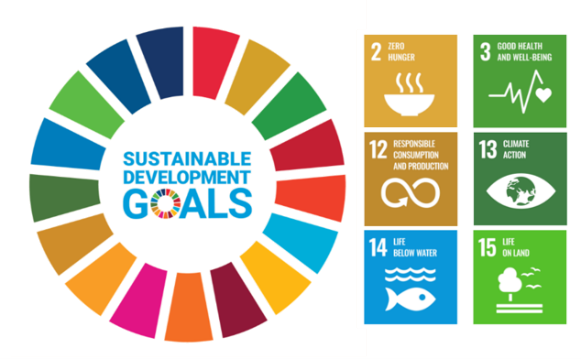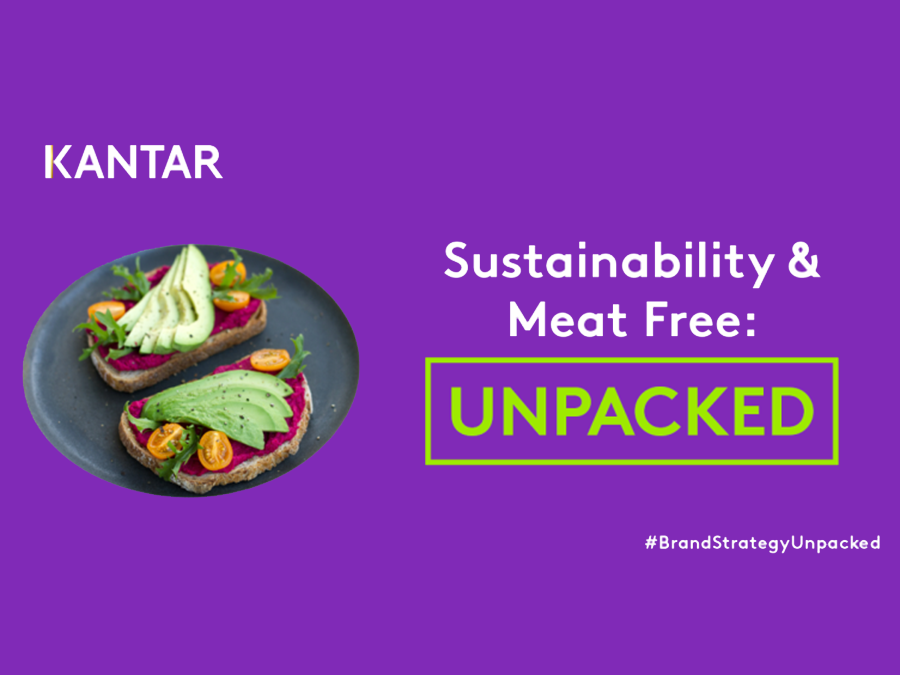We began the #BrandStrategyUnpacked series to de-mystify the world of brand strategy. Looking at the #meatfree category as our use case we are unpacking the three strategic stages to building a meaningfully different brand:
1. Uncover opportunities – what can we find out about a category? Who are the major players? Who holds the brand power? What are the existing behaviours and attitudes? What are the frictions and fuels that influence behaviour? How do you grow both meaning and difference?
2. Prioritise choices – what are the most valuable segments to go after? How do brands apply their strength to opportunity segments? How can brands authentically activate their difference in a meaningful way?
3. Create, build and activate – it’s ‘go time’. How do you turn data into real world application? How do you consistently build for success? How do you inspire and excite consistently over time?
I am part of Kantar’s Sustainable Transformation Practice where we work at the intersection of people, brands and sustainability. To help bring these three stages to life even more and for UK national vegetarian week, I thought I would share some thoughts on vegetarianism, attitudes, behaviours, brands and sustainable consumption.
Why #nationalvegetarianweek is relevant to sustainability
Let’s start with framing how a vegetarian diet and sustainability come together.

For us to make significant progress on living in a more sustainable way it cannot be all about stopping people doing what they like doing. People still need to eat a well-balanced diet of varied foods, preferably that they enjoy. However, if we are not going to hinder future generations, we need to behave differently, eat different foods, in different quantities than we have become accustomed to - in some countries for many decades. The reality is that the rearing of livestock generates a similar amount of carbon to the amount generated by all transport put together (FAO). There is also impact beyond carbon, impacting biodiversity and health.
Without reducing meat and dairy consumption many of the UN Sustainable Development Goals simply won’t be achievable.
And there is evidence many British people understand this. The Kantar Sustainability Sector Index Study from 2022 found that 1 in 5 Brits said they would be willing to permanently reduce meat and dairy in their diet if it was easy and there was nothing stopping them. Even more women would do this as well as groups of people who are more engaged with sustainability issues.
With this, there has clearly been huge growth in the #meatfree market. In fact, our data shows a massive 58% of Brits are now buying plant-based products occasionally or more (Who Cares? Who Does? 2022). However, there appear to be some barriers stopping people reducing their meat eating by buying plant based more often. While 67% of this year’s #Veganuary participants said they’d like to continue to reduce eating meat, only 7% committed to sticking with a totally #vegan diet.
Show positive benefits, don’t ask for compromise
This clearly gives a lot of opportunity for brands to address the points of friction that are holding people back. We know that half the people who wanted to eat less meat thought alternatives were more expensive and required making compromises on quality. To address this point on quality, brands need to offer benefits people want to draw them into the category.
The reasons why people choose to reduce eating meat are health, followed by environment and animal welfare (Who Cares? Who Does? 2022).
In Maintaining Meat Free Momentum Tom Lees wrote that taste is the biggest driver of building demand for a meat free brand and that consumers don’t rate many brands in the market very highly on the reasons they want to buy – health, environment, taste. Combine this with perceived higher costs or feelings of low value for money and you get a sense of there being some clear opportunities for brands to help people that want to eat less meat to- meet their wish without compromises.
Shout about real progress
Noting the opportunity to meet consumers’ health and taste needs better, let’s focus a bit more on unpacking the smaller environmental impact need. Perhaps surprisingly, people don’t have strong perceptions of meat free brands’ positive environmental impact. The reality is many of these brands have strong sustainability ambitions and actions. Of course, being meat free in itself, is a big credential. HowGood is a food industry focused sustainability intelligence company. Looking at the carbon footprint of an example mushroom burger vs. a beef burger from farm to production HowGood calculate:
• Mushroom burger = 1.32 kgCO2 emissions/kg
• Beef burger = 30.06 kgCO2 emissions/kg
But, the meat free brands often go further. Some brands directly address the fact they offer processed products - with an environmental impact - from becoming carbon neutral, using renewable energy, using recyclable packaging and ambitions to foster regenerative agriculture within their production chain. So why might consumers not be getting these messages? Meat free brands have a lot to pack into any communications, and weaving sustainability as a topic into advertising is a challenge for many brands. But building these perceptions will require clearly communicating environmental credentials consistently over time. Companies also will need to do this in a way that is authentic to their brand, differentiates vs. the rest and makes these serious points in an accessible and relatable way.
There is a lot to unpack if meat free brands are going to make the most of the opportunities national vegetarian week will highlight to aspiring vegetarians. Lots of categories face similar challenges. While these can seem daunting, with the right insights - there is a way for every brand to make the most of the opportunities sustainable transformation brings and be part of making it happen.
Find and follow #BrandStrategyUnpacked on LinkedIn.

